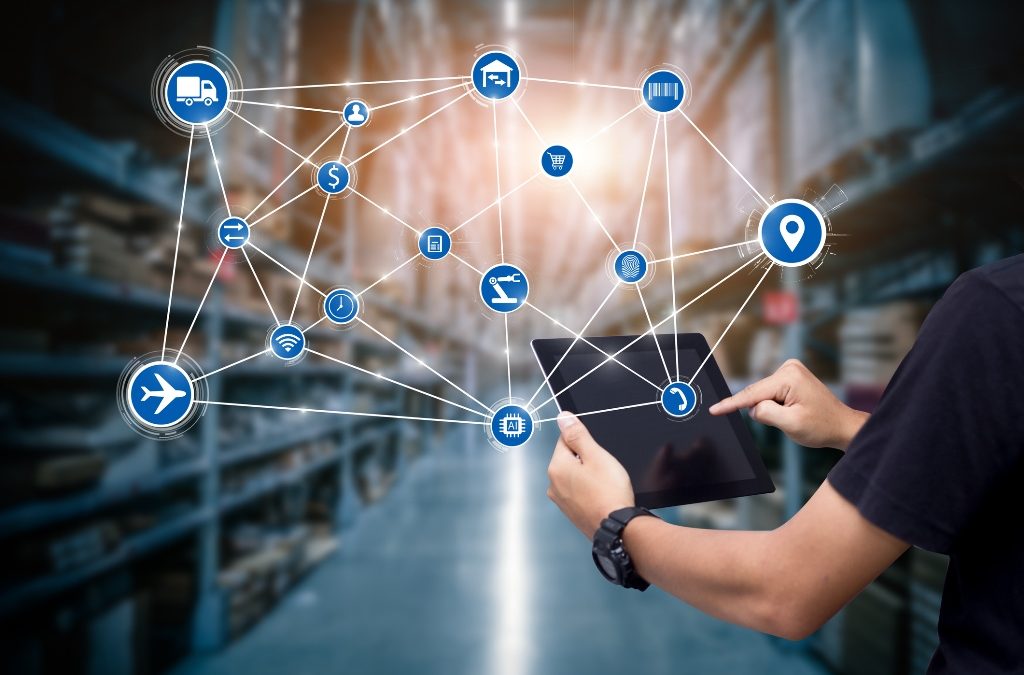Journey to Decarbonization Begins with Sustainable Supply Chains
Senior Vice President and Practice Leader for Energy, Industrial & Sustainability
From raw materials sourcing to production and final delivery, the journey of a product in today’s global supply chain is rife with environmental and societal issues. Excessive energy and water consumption, high waste production with low reuse rates, human rights issues, and abuse of labor are just some of the core issues plaguing supply chains globally. A supply chain is a vast network between large companies and their suppliers to develop, manufacture and distribute finished products to end users. More companies are becoming increasingly aware that their supply chain and sourcing decisions have a critical impact, not just on the environment but on society as well.
Tackling climate change and shouldering social responsibility are progressively becoming business priorities for organizations. A truly sustainable supply chain fully integrates environmental and societal values into its model at every stage. This means it is good for the planet, and employees and local communities are compensated and treated fairly. As consumers and investors today become more conscious about their carbon footprint, they demand more transparency about where their products come from and how they are made.
With decarbonizing supply chains now in the spotlight, addressing Scope 3 emissions is essential for companies to achieve carbon neutrality, or net-zero. Scope 3 emissions are indirect greenhouse gas emissions that occur upstream and downstream of the value chain (i.e., transport of supplies and products, business travel, and product disposal). The supply chain is a major source of Scope 3 emissions. In the aerospace sector, Airbus alone possesses a network of roughly 8,000 direct and 18,000 indirect suppliers from more than 100 countries that supply everything from parts and components to systems and services.
In 2022, the lack of commitment to reduce Scope 3 emissions led a majority of Boeing investors to put a resolution to a vote and passed a requirement for Boeing to do so. Geopolitical disruptions such as the COVID-19 pandemic, ongoing conflict in Ukraine, and the United States and China trade war have also exposed the constraints of today’s global supply chains. For example, the semiconductor shortage amid the COVID-19 pandemic saw deficiencies at all points of the supply chain. The industry is heavily concentrated in East Asia, and the lack of diversification, combined with increased demand, put a strain on the already limited supply.

The automotive industry was especially hit as it increasingly requires a variety of semiconductor chips to produce electric vehicles and conventional internal combustion engine vehicles. The pandemic forced assembly lines to halt around the world and highlighted the vulnerability of supply chains, especially the just-in-time model that many automotive makers employ. In an environment that is constantly evolving, companies need to take this opportunity to future-proof their supply chains and identify sustainability weaknesses inside and outside their organizations. Creating measurable goals is a great way to restore the confidence of stakeholders and ultimately realize net-zero.
One way is by leveraging innovations such as the circular economy, which allows products to be made using less energy for longevity and to be recycled or transformed for reuse. Additionally, advanced technology such as big data analytics and artificial intelligence will become a crucial part of supply chains. Data-driven supply chains provide an opportunity for companies to gain deeper insights into their operations, allowing them to make more strategic and informed decisions.
Today, companies that fail to comply with environmental, social and governance requirements put their brands at risk and could potentially face financial consequences. Sustainability is no longer a “nice to have” but a “must have” for all businesses. Supply chains are the easiest first step for many undertaking the journey to decarbonization. Companies will see a better bottom line and a better planet as well.
Frost & Sullivan was a Knowledge Partner of the recent MarCom Tech Live Virtual Conference, organized by Star Media Group as part of the group’s #digitalXdata 2022 event series on June 8 and 9. Li Ping Chwa, Director, Marketing Communication, Asia Pacific, spoke at the brand image and media session on day two.
To watch her session, visit http://bit.ly/marcom-frost.
Start the discussion at https://www.frost.com/contact-us/.
REQUEST INFO